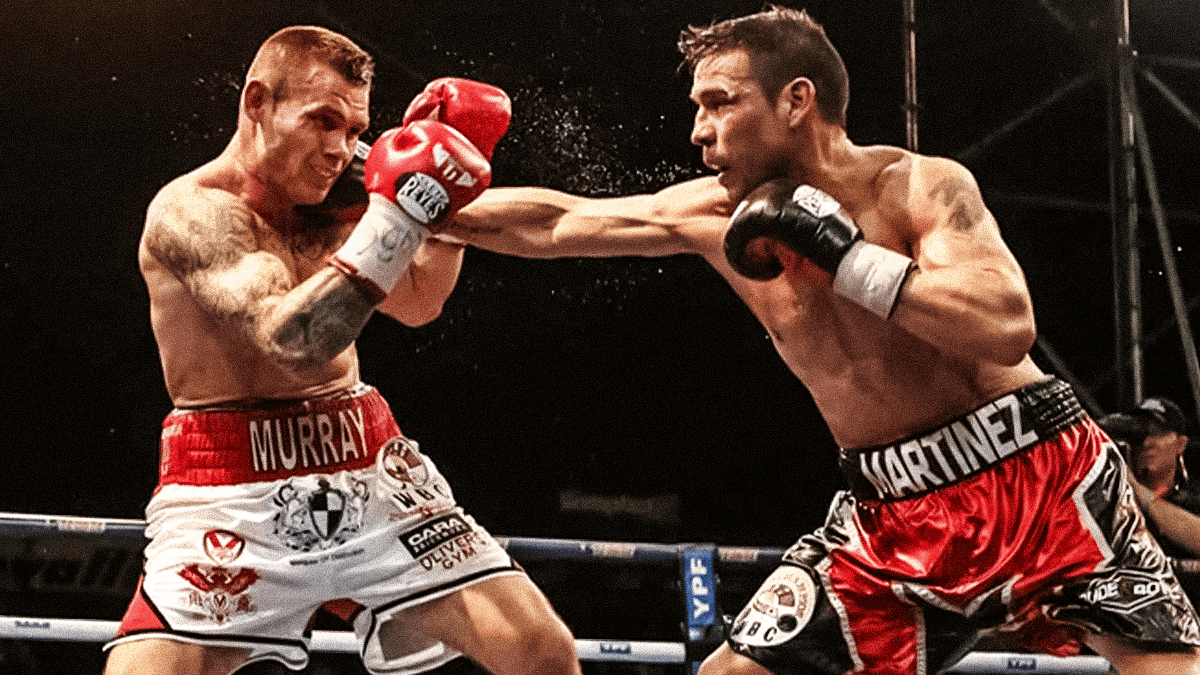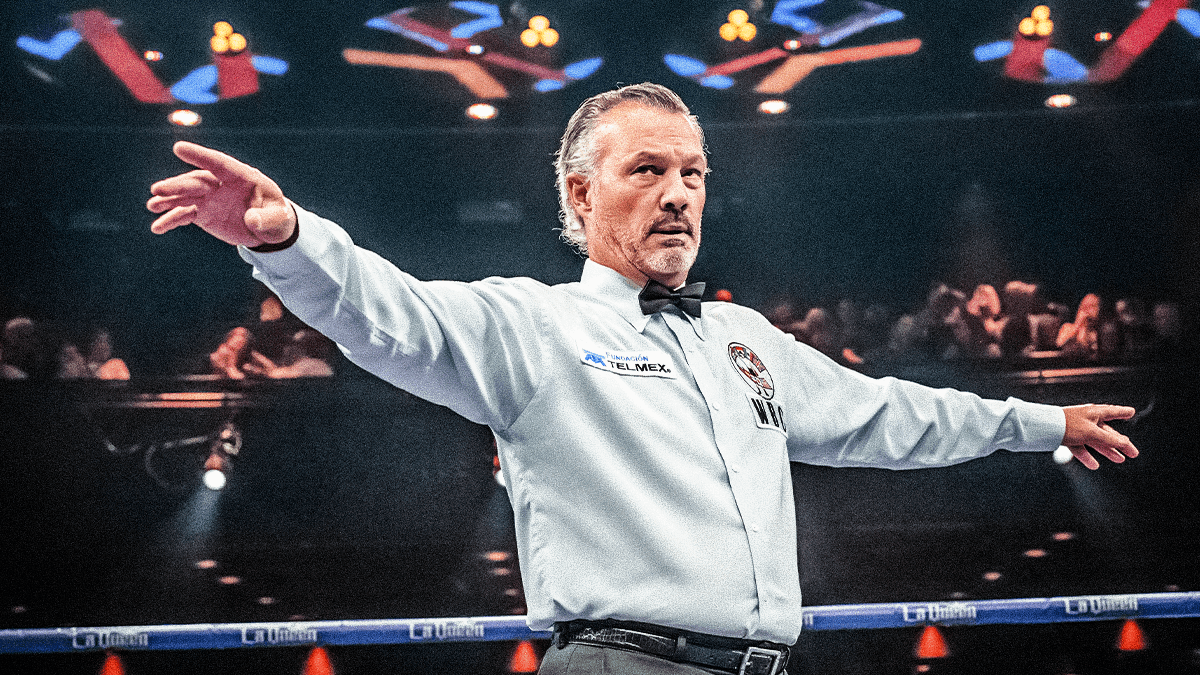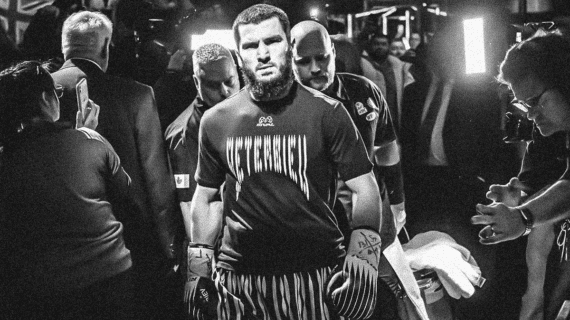One day, I was in Argentina for a major boxing event presented by HBO, featuring Sergio Martinez vs. Martin Murray in the main event — this was back in 2013…
As I entered the locker room with the whole team, I noticed something that left a deep impression on me: there was no athletic commission present. No official to supervise the hand wraps, no one to validate the gloves, no anti-doping checks.
Honestly, we could have cheated at every step: tampered with the gloves, hidden banned substances, manipulated the hand wraps… and no one would have noticed.
And you know what? That wasn’t an isolated case. Over the course of my career, I’ve seen this happen repeatedly in different countries — even today, in 2025.
It’s in moments like these that you realize how fortunate we are in Quebec.

Photo: The Province – Sergio Martinez VS Martin Murray
An Unsung Pillar of Boxing
In my series of articles on boxing’s unsung heroes, I wanted to shine a light on those who keep our sport running, often from the shadows. One absolutely essential player in the smooth execution of events — but still too unknown to the public — is without a doubt the athletic commission.
Put simply, an athletic commission is the regulatory body that oversees and governs combat sports in a given region. It ensures the rules are followed, that athlete safety is maintained, and that the integrity of the sport is preserved. Whether it’s during weigh-ins, during the fight itself, or in managing medical suspensions, the commission has the final say.
Its responsibilities are vast and crucial. It issues licenses for boxers, coaches, cutmen, judges, referees, and even promoters. It sanctions bouts, approves matchups, ensures fighters are medically fit to compete, assigns officials, and can even cancel a fight if safety conditions aren’t approved by the RACJ’s medical team. On fight night, it oversees the entire operation — backstage and in the ring — and can step in during emergencies.
In short, the commission isn’t there to slow things down, but to ensure everything runs with fairness, respect, and safety.
A History Forged Through Trials
Before 1987, professional boxing was regulated by municipal athletic commissions. This decentralized and often poorly managed system led to several excesses — one of the most tragic being the death of Montreal boxer Cleveland Denny in 1980, following his fight with Gaétan Hart. That tragedy was a turning point. A study by Gilles Néron exposed questionable practices of the time and led to major recommendations: boxer logbooks, medical monitoring, license regulations, and most importantly, the creation of a centralized provincial framework.

Photo: Le Devoir – Gaétan Hart
In 1987, after a second report led by Judge Raymond Bernier on the infiltration of organized crime in boxing, Quebec abolished its municipal commissions. The responsibility for combat sports shifted to the Régie de la sécurité dans les sports (RSSQ), and in 1998 to the Régie des alcools, des courses et des jeux (RACJ), where it still resides today.
The Legacy of Mario Latraverse
The architect of this reform was Mario Latraverse, a career police officer, who oversaw more than 1,900 fights during his 21 years leading the combat sports division. His mission: to restore the reputation of Quebec boxing through strict, impartial, and respected regulation.
To build a structure immune to shady influences, Mario Latraverse surrounded himself with a team mainly composed of former police officers. This strategic choice had a clear goal: to keep organized crime away from the sport. These collaborators, with their strong sense of integrity and constant vigilance, established a culture of discipline that endures to this day. Thanks to this approach, the environment around the sport became cleaner, and a more professional and credible framework took root.
Recognition That Reaches Beyond Our Borders
Thanks to this solid foundation, Quebec has earned a reputation for excellence. Today, many Quebec judges, referees, and supervisors are prominent on the international stage. They are called upon to work at the most prestigious boxing events around the globe because their competence is recognized and respected.
Recently, several Quebec judges have officiated major fights. Benoit Roussel worked Usyk vs. Dubois, and Berlanga vs. Sheeraz. Richard Blouin judged Norman Jr vs. Sasaki and Buatsi vs. Smith. Pasquale Procopio was called for Shields vs. Daniels. Nicolas Esnault officiated the Serrano vs. Taylor bout.
And then there’s Mike Griffin, whom I personally consider one of the best referees in the world. He represents Quebec with professionalism and composure in the most high-stakes fights — where every decision matters.

Photo: Vincent Ethier – Mike Griffon
A Strength Too Often Underestimated
As a cutman and corner man who has traveled to many countries, I’ve witnessed corrupt commissions, others disorganized, and some completely absent. Fights being allowed despite obvious risks, poorly protected athletes, questionable decisions. On the other hand, the RACJ embodies a rigorous, transparent, and humane approach — respected far beyond our borders.
We shouldn’t see the commission as a restrictive authority, but rather as a safety net — for the athletes and for the sport itself. It protects boxers, coaches, promoters, officials… but also the credibility of professional boxing.
In a world where a single fight can change a career, and where the slightest negligence can have serious consequences, the athletic commission is simply indispensable.
And in Quebec, we can proudly say it’s one of the best in the world.

